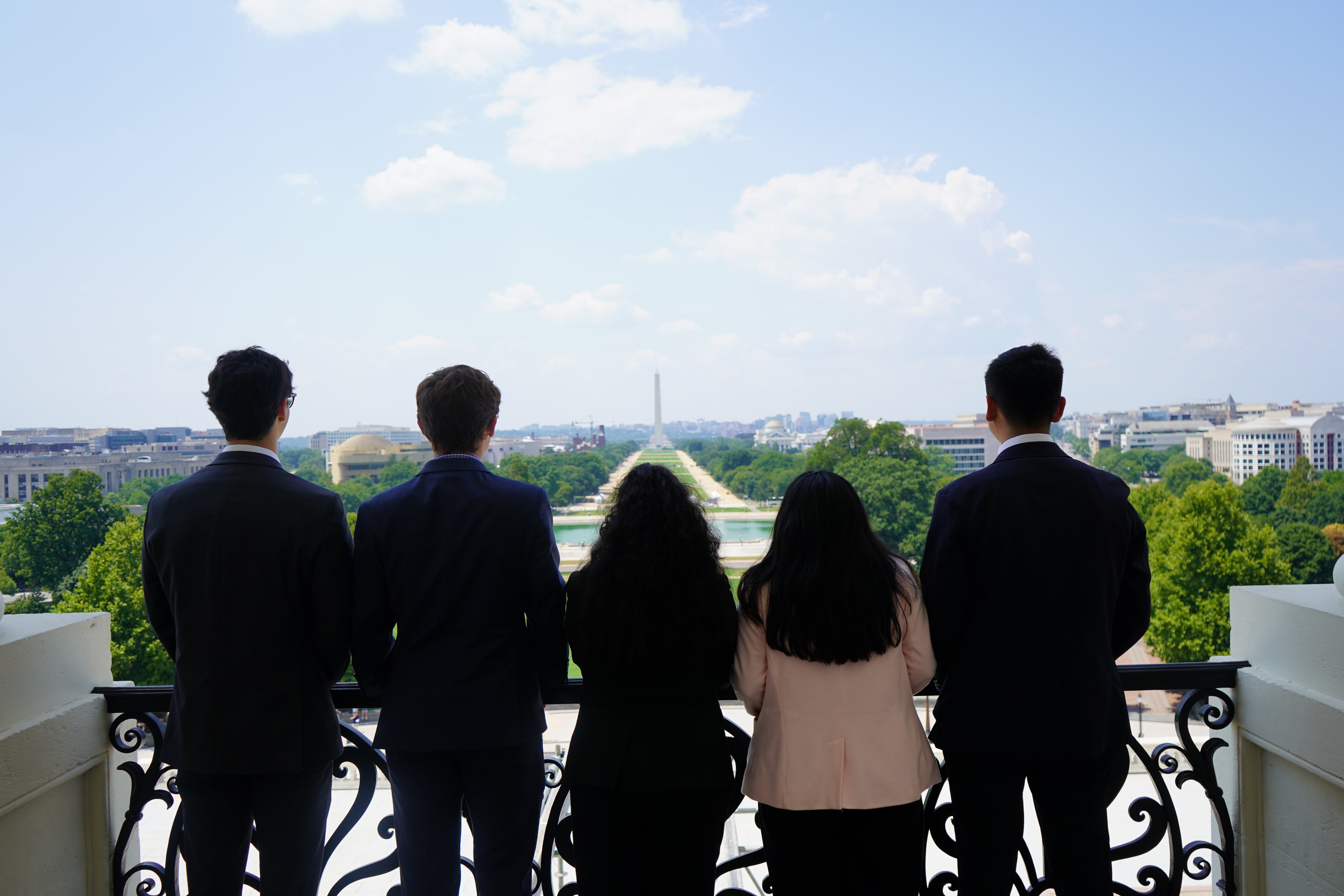This past summer I learned what my role as a U.S. citizen is.
As a first-generation American, I have always had an unfamiliarity with how to be American. The United States of America is a melting pot of people, so there is not one definition of what an American looks like. However, I think there is one underlying responsibility that every American should undertake: participation in our democracy.
During the summer, I interned at the House of Representatives for the congresswoman representing my district: Dr. Yadira Caraveo, who is also the first Latina congresswoman from Colorado. I wanted to intern for her because I wanted to see the work being done to serve my community. Additionally, I would be lying if I said I didn’t feel joy in seeing a face that looks like mine, representing me in Congress.
As a chemical engineering student, I felt very out of place and constantly curious to understand what the role of hearings and committees are and who was talking, or why I should care. To be frank, I entered the summer with the Schoolhouse Rock “I’m Just a Bill” episode as the foundation of my knowledge regarding the legislative process, which, all jokes aside, is still a great introduction to how our representatives create laws. There were definitely times in which I felt out of place and countless times I got lost. Yet, I learned so much.
I learned that there is so much need for there to be diversity amongst the people working to run the country everyday. I am not just talking about race or ethnic diversity, but also diversity of thought, people who think differently and are experts in different fields.
There was an event at the Capitol held by the Department of Energy that proves this point. On the topic of nuclear fusion, an audience member, introducing himself as the Science and Technology Legislative Aide, asked if there was risk of a nuclear meltdown. For context, nuclear fusion can’t cause a meltdown because it is different from fission, which is the one responsible for meltdowns such as Chernobyl. In other words, the person responsible for providing guidelines and legislative recommendations for nuclear fusion that could become laws didn’t know what they were talking about. The fact that a person who is not familiar with a technology is able to provide legislative recommendations on how to regulate the technology is terrifying.
Yet, the most important thing I learned was that my voice mattered. That my opinion as an American citizen on where our country should go was important. In national elections such as the presidential race, our votes may feel a little futile. The Electoral College places some disproportionate importance on single-state voters and if you are a Republican in a blue state (like California), or a Democrat in a red state (like Idaho), your vote may feel a little purposeless.
However, where your vote truly matters is in local elections.
About a third of eligible voters didn’t vote in 2020, and this is truly where democracy dies. People can’t expect the system to be fixed or work for them if they are unwilling to put in the work themselves to provide the pressure needed to bring about lasting change.
Don’t get me wrong, the framework in which this country was founded inherently favored the same 56 men who signed it — wealthy and white men. But our country and the American spirit has come to evolve so much more than what it was 248 years ago. Local elections bring about small changes that can later snowball into massive impacts, for better or worse. This is why our voice carries weight, why it’s important to vote and believe that we can create change. As Americans, we must be willing to put in the work now to create a better future for future Americans. In the end, despite party divisions, polarization and hatred we are still Americans and we must believe in our country.
As a whole, I never really thought I would see myself on the steps of Capitol Hill and much less interning on the Hill. I never even believed that there was a place for me there. My mom and dad were very proud. They said that it was a joy to see their Mexican American son, with his little brown face at the Capitol, wearing a suit.
